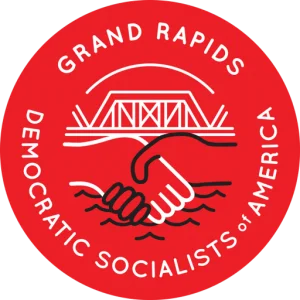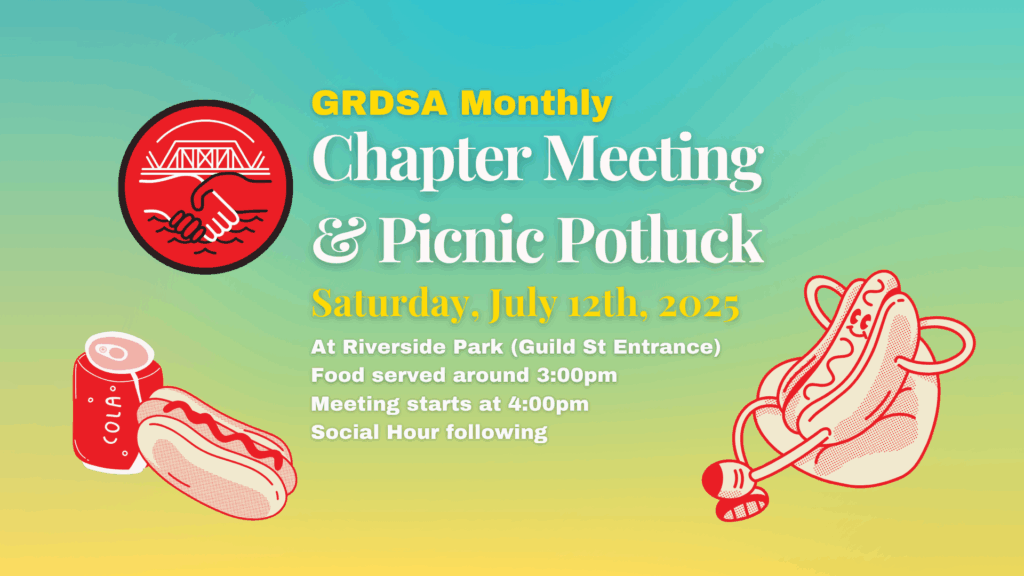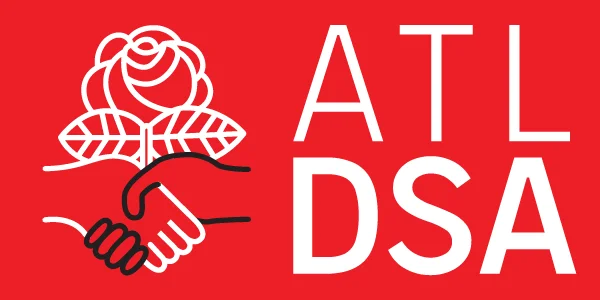

On The Value of Research




Red Catholic: A Life of Contradictions


July Chapter Meeting & Picnic Potluck
For our July Chapter Meeting, we’re having a Picnic Potluck! The Chapter will be providing hot dogs and beverages. We are asking folks to bring a side or dessert. (And camping chair if you have one.)
We’ve secured a backup location in case of bad weather. We’ll make that decision on Saturday. Please RSVP below to receive email updates.

We’re meeting in the evening of Saturday, July 12, at Riverside Park (near the Guild St entrance). Arrive at 3pm, the meeting will start around 4pm. After the meeting, we’ll keep hanging in the park. Feel free to bring a frisbee, hacky sack, or other park activities.
We encourage you to also attend Unionizing: Escalation & Recognition, a part of our Worker’s Power Teach-in series earlier in the day, 12-2pm. The teach-in will be at Fountain Street Church, Room 109.
NOTE: Because we’ll be meeting in the park, we will not be offering a hybrid option. This will be an in-person only meeting. If you cannot attend but want to share your opinions on the agenda items please email info@grdsa.org or post to the GRDSA slack.
The post July Chapter Meeting & Picnic Potluck appeared first on Grand Rapids Democratic Socialists of America.


Statement on the Public Service Commission Democratic Primary Runoff
There is a Democratic primary runoff for the Georgia Public Service Commission on July 15, 2025. If you were registered to vote in Georgia as of May 19, you are eligible to vote in this runoff, regardless of where in Georgia you are or whether you voted in the June primary, unless you voted in the Republican primary. We recommend voting for Peter Hubbard, as he is the most qualified candidate and is likely to seek reelection to the office next year, and then serve a full term. This recommendation is not an endorsement from Atlanta DSA.
What is the PSC?
Georgia’s five-member Public Service Commission (PSC) oversees utilities and has the power to approve or deny requested rate increases, among other things. Currently, all five members are Republicans, and they are quite friendly to Georgia Power and the other industries they regulate. After a voting rights lawsuit was thrown out, special elections for two seats were scheduled for this year. All PSC members are elected statewide.
The PSC is supposed to make sure that Georgia Power doesn’t automatically get everything they want. Yet time and time again, they have approved rate hikes exactly as requested by Georgia Power. We need a Public Service Commission that actually serves the public, rather than giving a rubber stamp to utilities. The PSC also regulates usage for high-energy facilities like data centers and handles some long-term policy planning. In particular, the PSC has repeatedly approved rate hikes to pay for the two new reactors at Plant Vogtle, even as the project’s estimated time and cost continued to balloon. The reactors are now operational, but the public would have benefitted from a PSC that was more willing to ask hard questions about Georgia Power’s plans early on.
Who is on the Ballot?
The July 15 runoff is between clean energy advocate Peter Hubbard and former Atlanta City Council member Keisha Sean Waites. Hubbard is the founder of the Georgia Center for Energy Solutions, a nonprofit that advocates for a transition to a zero-carbon future. Hubbard has served as an intervenor in PSC rate cases, meaning that he files and argues in front of the PSC for a position that otherwise would not have been represented. He says that he is running because the PSC has ignored the evidence presented in favor of “cleaner, cheaper, and more reliable renewable energy”.
Hubbard combines the policy expertise and willingness to challenge powerful interests that we need on the PSC. In contrast, Waites openly admits she is not familiar with utility policy. Furthermore, this is the seventh office Waites has run for in the last ten years, and she has resigned from both of the offices she was successfully elected to in order to seek a different office (and lost). We would like to see a Public Service Commissioner who can be relied on to stay in the office and continue holding Georgia Power accountable for many years. We therefore recommend voting for Peter Hubbard.
When and How Can I Vote?
There is a Democratic primary runoff on July 15 and a general election on November 4. Early voting must begin in all counties by July 7, but some counties will start early voting earlier; it ends on July 11. At the polls, be sure to request a Democratic ballot. (In most of Georgia, there will not be any other type of ballot available.)
Where Can I Vote?
Because of low turnout in the June primary, there may be a limited number of voting sites for the runoff. In all counties, early voting sites may be limited. In addition, counties where less than 1% of registered voters cast a Democratic ballot in June are authorized to open only a single polling place on Election Day for the runoff. County closures for the Atlanta Regional Commission area are as follows:
- Fulton, Cobb, DeKalb, Gwinnett, Clayton, Henry, Rockdale, Douglas, and Fayette: all Election Day polling places must be open on July 15
- Cherokee and Forsyth: only one polling place confirmed to be open in each county
- We have not examined whether any other counties have closures. If you do not live in one of the eleven counties listed above, we recommend checking with your county election office; it is unclear whether the Secretary of State will provide this information.


Against ANCs Altogether


Suzanne Crowell: Presente!


Time is short, act now! Tell you reps to pressure their Republican colleagues to vote NO!
Slightly different versions of the “Big Beautiful Bill” have passed in the House and Senate. Wildly unpopular among the American people, this bill has barely squeaked through Congress. Passing in both the House and Senate by only 1 vote. Now, it goes back to the House. Trump is calling for it to be on his desk for July 4th.
Time is short, act now! Use the form below to tell you reps to pressure their Republican colleagues to vote NO!
NO cuts to SNAP and Medicaid!
NO funding for ICE abductions!
NO handouts for billionaires!
Cuts to vital services are dwarfed by the handouts to billionaires. The “Big Beautiful Bill” would be one of the largest cash grabs by billionaires in world history.
ICE has terrorized communities by abducting people off the street. Masked men have grabbed people off the street and put them in unmarked vehicles. Holding them without charges, deporting them without due process. The “Big Beautiful Bill” will reinvigorate an agency that kidnaps our neighbors.
The “Big Beautiful Bill” makes massive cuts to vital programs. More than 40 million Americans will lose vital help putting food on the table. As many as 17 million poor and disabled Americans will lose their healthcare. Cuts to rural hospitals and nursing homes will leave many without access to medical care.
Many will go hungry and many will die because of this bill. Tell your representatives to use all their power to stop this Big Bullshit Bill!
The post Time is short, act now! Tell you reps to pressure their Republican colleagues to vote NO! appeared first on Grand Rapids Democratic Socialists of America.


The Vermont Socialist - GMDSA newsletter (6/28/25): A propaganda which is accessible to everyone

There's never been a more exciting time to be in DSA. As you may have heard, a democratic socialist recently won the New York City mayoral primary.
33-year-old Zohran Mamdani's unexpected victory over former governor Andrew Cuomo in America's biggest city demonstrates the power of politics that centers the material needs of the working class. Amid numerous reasons for despair, it shows that DSA can offer a path forward. It's a moment of national significance, and now we need to take the model nationwide.
You can play a part by joining DSA and getting involved in your local chapter. Scroll down for our calendar of meetings in July.
You'll notice that it doesn't include a chapter or branch meeting. Instead, we've planned a couple outdoor social events for the summer. One of them is tomorrow (6/29)!


Come to Waterbury Center State Park (177 Reservoir Rd.) at 9:30 a.m. or to Stowe's Sterling Pond Trailhead (6443 Mountain Rd.) at 10 a.m. and spend a day in nature with other socialists. You can hang out with us again on July 20 at Burlington's Oakledge Park (11 Flynn Ave.), where a picnic will begin at 4:30 p.m. Feel free to email us at this address if you have any questions about either event.
We're getting folks together in part because we're trying to raise funds for our chapter's elected delegates in advance of the 2025 DSA National Convention in Chicago, where they'll debate resolutions and help choose a new National Political Committee. If we want our chapter's voice represented in August, we need to make sure that our representatives can afford the trip. You can donate here.
Finally, you may have heard that downtown Burlington is getting a new movie theater in the fall. If you noticed its name or read about its democratic governance, you may guessed that socialists had something to do with it. GMDSA has endorsed Partizanfilm, a cooperative, grassroots project to build a not-for-profit cinema for the people. Consider becoming a member! And please tell them we sent you on their signup form.
GMDSA MEETINGS
🚲 GMDSA's Urbanism Committee will meet on Monday, July 7, at 6 p.m. on Zoom.
🧑🏭 Talk about your job and learn about shop-floor organizing from peers at Workers' Circle (co-hosted by the Green Mountain IWW) on the second and fourth Wednesdays of each month, including July 9, at 6 p.m. at Migrant Justice (179 S. Winooski Ave., Burlington).
🔨 Our Labor Committee will hold its next meeting on Monday, July 14, at 6 p.m. on Zoom.
🗳️ The next meeting of our Electoral Committee will take place on Wednesday, July 16, at 6 p.m. on Zoom.
🏳️⚧️ Our Gender & Sexuality Committee will meet on Monday, July 21, at 7 p.m. on Zoom.
🤝 Find out how you can help our Membership Committee improve recruitment and involvement in our chapter on Tuesday, July 22, at 6 p.m. on Zoom.
🎥 Socialist Film Club will temporarily go remote next month. July's pick is the Italian drama The Working Class Goes to Heaven (1971), available via Solidarity Cinema. After watching it individually at home, we'll discuss it together at Zero Gravity (716 Pine St., Burlington) on Friday, July 25, at 8 p.m.
🍉 Our Palestine Solidarity Committee will meet on Monday, July 28, at 7 p.m. on Zoom.
STATE AND LOCAL NEWS
📰 About 16,500 protesters rallied against President Trump in Burlington on No Kings Day, which may have been the state's most active day of political demonstrations ever.
📰 The Vermont Progressive Party needs a new executive director.
COMMUNITY FLYERS



